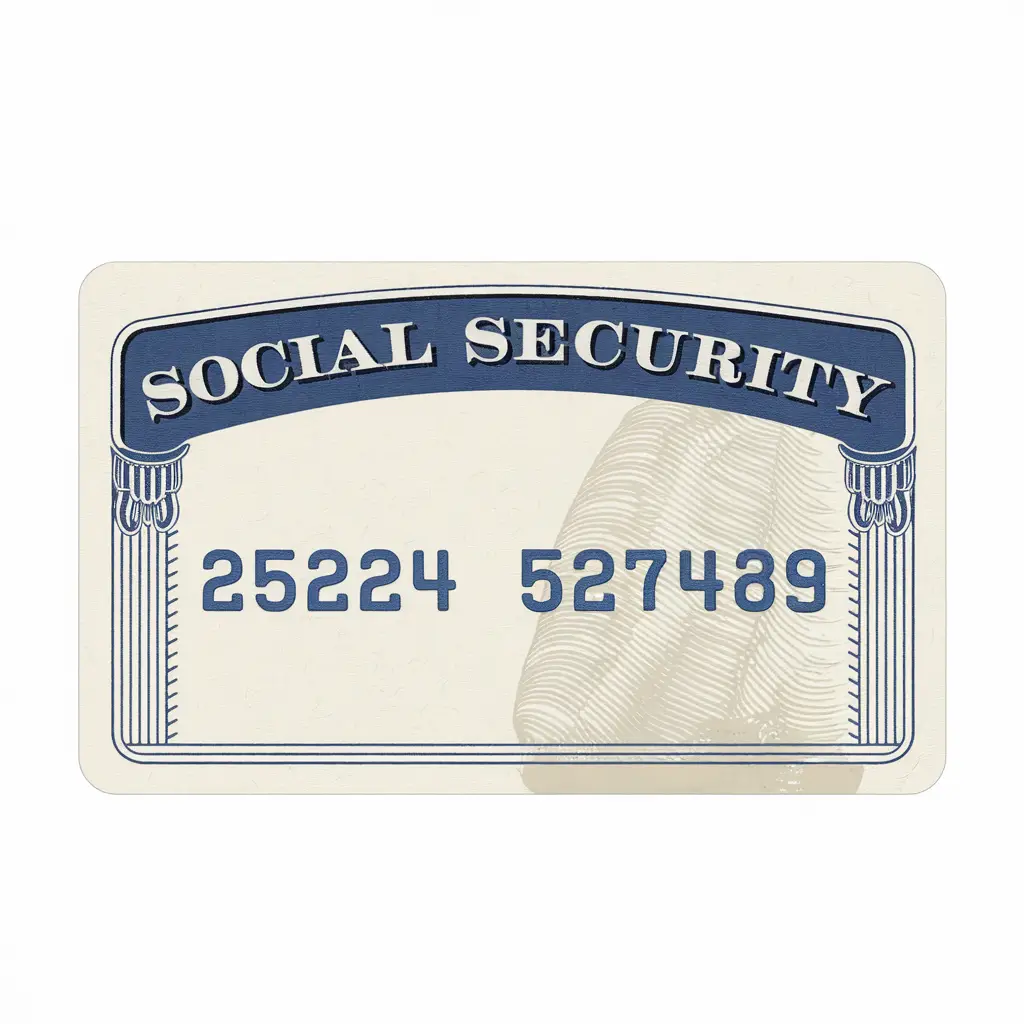Does Medicare Cover Home Health Care Services? [Updated 2024]
Medicare often confuses people when it comes to understanding what’s covered, especially concerning home healthcare services. Many seniors and their families find themselves asking, “Does Medicare cover home health care?” The short answer is yes, but it comes with specific conditions and limitations.
Home health care services are critical for those who need medical support but prefer to stay in the comfort of their own homes. This option can be a lifeline, offering essential care while allowing patients to maintain their independence. In this blog post, you’ll learn exactly what Medicare covers, who qualifies, and how to navigate the system to get the care you need.
Understanding these details can help you make informed decisions about your healthcare options, ensuring that you or your loved ones get the appropriate support without unnecessary stress. Let’s dive in and clarify the ins and outs of Medicare’s home health care benefits.
What is Medicare?
Medicare is a federal health insurance program that primarily supports individuals who are 65 and older, as well as certain younger people with disabilities. It’s a critical safety net designed to help cover many of the healthcare costs that come with aging or long-term disabilities. But what exactly does Medicare entail? Let’s break it down.
The Purpose of Medicare
Medicare was established in 1965 to ensure that older Americans could afford necessary medical care. It offers a range of benefits, from hospital stays to routine check-ups, making it easier for many to meet their healthcare needs without facing financial ruin. Think of it as a shield against the daunting costs of healthcare, providing peace of mind for millions of Americans.
The Different Parts of Medicare
Medicare isn’t one-size-fits-all; it’s divided into four key parts, each designed to cover specific aspects of healthcare.
Medicare Part A
Part A primarily covers hospital insurance. This includes inpatient care in hospitals, skilled nursing facility care, hospice care, and some home health care services. If you’ve worked and paid Medicare taxes for a certain amount of time, you usually don’t have to pay a premium for Part A. It’s like having a safety net for serious medical events.
Medicare Part B
Medicare Part B provides medical insurance. This part covers services like doctor visits, outpatient care, medical supplies, and preventive services. Unlike Part A, most people do pay a premium for Part B. Think of it as the part that helps you with day-to-day medical costs and keeps your ongoing health in check.
Medicare Part C
Medicare Part C, also known as Medicare Advantage, offers an alternative to Original Medicare (Parts A and B). These plans are offered by private insurance companies approved by Medicare and often include additional benefits like vision, dental, and prescription drug coverage. It’s a bit like bundling services together for more comprehensive coverage.
Medicare Part D
Medicare Part D deals with prescription drug coverage. This part helps cover the cost of prescription drugs, which can be a significant expense for many. It’s offered through private insurance companies and requires a monthly premium. Think of it as the medication safety net, ensuring you can afford the drugs you need to stay healthy.
How Medicare Works Together
Understanding how these parts work together can help you navigate your healthcare options more effectively. For instance, you might have Original Medicare (Parts A and B) and add a Part D plan for prescription drugs. Alternatively, you could opt for a Medicare Advantage plan (Part C) that includes additional benefits and Part D coverage. The key is to choose a combination that best fits your healthcare needs and financial situation.
Navigating Medicare might seem complex, but breaking it down into these components can simplify your choices. It’s all about finding the right balance to ensure that your healthcare needs are met without unnecessary stress or financial burden.
Overview of Home Health Care Services
Home health care services provide essential medical support to individuals in the comfort of their homes. These services are tailored to help patients recover from illness, manage chronic conditions, or maintain their overall health and well-being.
Types of Services Offered
Home health care services cover a wide range of medical and support services. Here are some of the key types of services you can expect:
- Skilled Nursing Care: Licensed nurses provide medical care, including wound care, IV therapy, and administering medications.
- Physical Therapy: Therapists help patients improve their mobility and strength through exercises and treatments.
- Occupational Therapy: Focuses on helping patients regain daily living skills, such as dressing, cooking, and bathing.
- Speech Therapy: Assists individuals with speech or swallowing difficulties.
- Medical Social Services: Offers counseling and assistance with community resources.
- Home Health Aide Services: Provides help with personal care, such as bathing, dressing, and grooming.
Who May Benefit?
Home health care services are beneficial for various groups of people. Here are those who may benefit the most:
- Seniors: Aging individuals often need ongoing medical care but prefer to stay in their own homes.
- Chronic Illness Patients: Those with conditions like diabetes or heart disease can receive regular monitoring and treatment.
- Post-Surgery Patients: Individuals recovering from surgery can get medical care without needing to stay in the hospital.
- Disabled Individuals: People with disabilities may require assistance with daily activities and medical needs.
- Terminally Ill Patients: Those in palliative care can receive compassionate end-of-life support.
Benefits of Home Health Care
Opting for home health care comes with several benefits that can enhance quality of life:
- Comfort: Being at home can reduce stress and promote faster healing.
- Personalized Care: Services are tailored to each individual’s specific needs.
- Independence: Patients can maintain a level of independence that might not be possible in a hospital setting.
- Cost-Effective: Often more affordable than hospital stays or long-term nursing care.
Understanding these services can help you make informed decisions about your healthcare options. Home health care offers a flexible and supportive solution that allows individuals to receive the care they need while staying in familiar surroundings.
Medicare Coverage for Home Health Care
Understanding Medicare coverage for home healthcare services can be a bit tricky, but it’s crucial for ensuring that you or your loved ones get the appropriate support. Medicare does offer coverage for home health care, but there are certain conditions and limitations to be aware of.
Eligibility Requirements
For Medicare to cover home health care services, there are specific eligibility requirements that must be met.
- Physician Certification: First, a doctor must certify that you need one or more of the following services: intermittent skilled nursing care, physical therapy, speech-language pathology services, or continued occupational therapy. This certification acts as a green light for home health care under Medicare.
- Homebound Status: You must also be considered homebound. Being homebound means that leaving your home isn’t easy. You may need the help of a wheelchair, walker, or another person to leave your home. Essentially, your condition should make it a considerable effort to leave home.
- Plan of Care: Additionally, a doctor must create a detailed care plan. This plan outlines the specific services you need and how often you’ll need them. It ensures the care provided is targeted and effective.
Types of Services Covered
Medicare covers a variety of home healthcare services, making it easier for patients to receive comprehensive care at home. Here are the main services Medicare covers:
- Skilled Nursing Care: This includes services provided by a licensed nurse, such as administering medications, wound care, and IV therapy.
- Physical Therapy: Therapists help patients regain strength and mobility through exercises and rehabilitation techniques.
- Occupational Therapy: This focuses on helping patients regain the ability to perform daily living activities, such as dressing, bathing, and cooking.
- Speech Therapy: Speech-language pathologists assist with speech or swallowing difficulties, helping patients communicate more effectively.
- Medical Social Services: These services provide counseling and assistance in finding community resources. They help patients and their families navigate the healthcare system.
- Home Health Aide Services: Aides assist with personal care tasks like bathing, dressing, and grooming. They support daily hygiene and routine activities.
Limitations and Exclusions
While Medicare covers many home healthcare services, there are limitations and exclusions to be aware of.
- Non-Skilled Care: Medicare does not cover non-skilled, custodial care. This includes help with daily activities like meal preparation, housekeeping, and personal care if that is the only care you need.
- 24-Hour Care: The program does not cover 24-hour-a-day care at home. If you need around-the-clock care, other arrangements will have to be made.
- Homemaker Services: Services such as shopping or cleaning are not covered unless they are part of the skilled care prescribed in your care plan.
- Long-Term Care: Medicare’s home health care benefits are designed to be temporary. They do not cover long-term home health care or ongoing custodial care.
Understanding Medicare’s coverage for home health care can provide peace of mind and ensure that you get the care you need. Knowing these eligibility requirements, the types of services covered, and the limitations can help you navigate your home health care options more effectively.
How to Apply for Medicare Home Health Care Services
Applying for Medicare home health care services can seem like a big task, but breaking it down into simple steps can make the process much smoother. By following these guidelines, you can ensure you get the care you need efficiently and promptly.
Initial Steps
Getting started with Medicare home health care services involves a few crucial initial steps. Here’s what you need to do:
- Obtain a Doctor’s Order: The first step is to see your primary care physician. Your doctor needs to certify that you require home health care services. This certification is essential because Medicare requires confirmation that the services are medically necessary.
- Choose a Medicare-Certified Home Health Agency: Not all agencies are certified by Medicare, so you’ll need to find one that is. Medicare’s website provides a search tool to help you find certified agencies in your area. Make sure the agency you select matches your specific needs and preferences.
Take these steps carefully:
- Consult Your Doctor: Schedule an appointment to discuss your health status and the type of home health care services you might need.
- Research Agencies: Use online resources, ask for recommendations, and compare agencies based on services offered, reputation, and location.
Documentation Needed
To apply for Medicare home health care services, you’ll need to gather specific documents and information. Having these ready can speed up the process:
- Personal Information: Keep your Medicare card and any supplemental insurance information handy. You’ll need to provide your Medicare Number and other relevant details.
- Doctor’s Certification: A written certification from your doctor is essential. This document states that you require intermittent skilled nursing care, physical therapy, speech-language pathology services, or continued occupational therapy.
- Home Health Agency Information: Once you’ve chosen a Medicare-certified home health agency, you’ll need their details for your application. This includes the agency’s name, address, and contact information.
Checklist of what you’ll need:
- Medicare Card: To provide your Medicare Number.
- Doctor’s Note: Certifying the need for home health care.
- List of Current Medications: For accurate medical assessments and care plans.
- Emergency Contact Information: For administrative and healthcare coordination.
- Insurance Details: Any additional insurance that might cover extra services.
By following these steps and ensuring you have the necessary documentation, you can streamline the application process for Medicare home health care services. This allows you to get the care you need while staying in the comfort of your own home.
Costs Associated with Medicare Home Health Care
When looking into Medicare for home health care, it’s essential to understand the costs involved. Here’s a comprehensive breakdown to help you grasp what you might expect to pay, and how to manage those expenses effectively.
Medicare Part A and Part B Costs
Part A covers inpatient hospital stays, skilled nursing facility care, and some home health care services. For many, Part A doesn’t have a premium if you’ve worked and paid Medicare taxes for a sufficient period. But what about home health care?
- No Deductible or Coinsurance: For qualifying home health care under Part A, there’s no deductible, and you typically won’t have to pay coinsurance. That means once you’re approved, your out-of-pocket expense is essentially zero for services covered under Part A.
Medicare Part B deals with outpatient care, including doctor visits and preventive services. It also covers some home health care services, just like Part A.
- Part B Premium: You’ll likely pay a monthly premium for Part B, which varies based on your income. In 2024, the standard premium is about $174.70 per month.
- 20% Coinsurance: After you meet the Part B deductible, which is $233 in 2024, you’ll generally pay 20% of the Medicare-approved amount for durable medical equipment and other services.
The primary difference? Part A primarily covers inpatient care while Part B handles outpatient services. For home health care, both parts can play a role, but you may find yourself dealing with different types of costs depending on the services you need.
Additional Costs and Coverage Options
While Medicare covers many home healthcare services, additional costs can still arise. Being prepared means looking into supplemental coverage options.
Out-of-Pocket Costs
Even with Medicare coverage, there are situations where you might face extra expenses:
- Extended Care: Medicare doesn’t cover long-term or 24-hour home care. If you need extended care, those costs are out-of-pocket.
- Non-Skilled Care: Costs for services like meal prep, housekeeping, and personal care, if not medically necessary, aren’t covered by Medicare.
Supplemental Coverage Options
To manage out-of-pocket costs, consider additional coverage options:
- Medigap (Medicare Supplement Insurance): Helps cover the gaps in Original Medicare. It can pay for coinsurance, copayments, and more, reducing your overall burden.
- Medicare Advantage Plans (Part C): Offered by private insurers, these plans bundle Part A, B, and often Part D. They might cover extra benefits, including some home healthcare costs not typically covered by Original Medicare.
Choosing the right supplemental plan depends on your health needs and budget. Keep in mind the following
- Compare Plans: Look at the benefits, premiums, and coverage each plan offers. Websites like Medicare.gov can help you compare.
- Check Networks: Medicare Advantage Plans may have network restrictions, unlike Original Medicare. Ensure your preferred home health care providers are in-network.
Being aware of these costs and options will help you make informed decisions and ensure you or your loved ones receive the necessary care without unexpected expenses.
Frequently Asked Questions
When it comes to Medicare and home health care services, many people have important questions. Understanding the answers can help you make better choices for your healthcare needs.
Can Medicare Deny Home Health Care Coverage?
Yes, Medicare can deny home health care coverage. Here are some instances where this might happen:
- Lack of Medical Necessity: If Medicare determines that the services you need aren’t medically required, coverage can be denied. For example, if your condition doesn’t require skilled nursing or therapy, you might not qualify.
- Inadequate Documentation: If your doctor’s certification or care plan isn’t detailed enough, Medicare might deny coverage. Always ensure that all paperwork is thorough and complete.
- Non-Homebound Status: You must be considered homebound to qualify. If you’re able to leave your home frequently without significant effort, Medicare might not cover your services.
If your coverage is denied, don’t panic. You can take steps to resolve the issue:
- Review the Denial Notice: Understand why the coverage was denied. The notice will provide details.
- Gather Additional Information: Collect any additional medical records or documentation that supports your need for home health care.
- Contact Your Doctor: Ensure your doctor reviews and updates your medical records and the certification of your need for care.
How to Appeal a Denial
Appealing a denial can seem daunting, but it’s entirely possible with the right steps. Here’s how you can go about it:
- Read the Denial Letter Carefully: Medicare will send you a letter explaining why your claim was denied. This letter is crucial as it outlines the specific reasons for denial.
- Submit a Redetermination Request: The first step in the appeal process is to request a redetermination from the company that handles Medicare claims. This must be done within 120 days of receiving the denial. Use the form included with the denial notice, or download it from Medicare’s website.
- Include Supporting Documents: Attach any additional medical records, doctor’s notes, or other evidence that supports your claim. The more detailed and specific, the better.
- Write a Clear Letter: You can also write a letter explaining why you believe the denial was incorrect. Be concise and stick to the facts. Include your Medicare Number and any other relevant identification details.
- Mail Your Appeal: Send your appeal to the address provided in the denial notice. Make sure to keep copies of everything for your records.
- Follow-up: Contact the Medicare claims processor if you haven’t heard back within a reasonable time. Persistence is key.
What to Do if Coverage is Insufficient
Sometimes, Medicare coverage might not be enough to meet all your home healthcare needs. If you find yourself in this situation, here are some actions you can take:
- Explore Supplemental Insurance: Consider purchasing a Medigap plan or a Medicare Advantage Plan. These can help cover additional costs that Original Medicare doesn’t, such as extended home health services.
- Medigap Insurance: Medigap helps with coinsurance, copayments, and deductibles.
- Medicare Advantage Plans: Often includes extra benefits not covered by Original Medicare.
- Look into Community Resources: Many communities offer resources for seniors and disabled individuals. These can include local health departments, nonprofit organizations, and charities that provide assistance with medical and non-medical home services.
- Check Medicaid Eligibility: If your income and assets are limited, you may qualify for Medicaid, which can cover additional home healthcare services that Medicare doesn’t.
- Hire Private Care: If financially feasible, you might consider hiring private care to fill the gaps. This ensures that you receive all the care you need, though it can be more costly.
By taking these steps, you can help ensure that you or your loved one receives comprehensive home health care, even when Medicare’s coverage isn’t enough.
Conclusion
Medicare does provide coverage for essential home health care services, but it’s vital to understand the limitations and requirements involved.
Eligibility hinges on meeting specific conditions, like needing skilled care and being homebound. Medicare will cover services such as skilled nursing, therapy, and medical social services, but it doesn’t cover non-skilled or around-the-clock care.
Navigating through Medicare and understanding what it covers can be challenging, but being informed can help you maximize the benefits.
If you’re considering Medicare home health care, take action by consulting your doctor and researching certified agencies. Make sure all necessary documentation is in order.
Plan ahead for additional costs, and consider supplemental insurance if needed. By understanding your options and preparing accordingly, you can ensure you receive the care you need while staying in the comfort of your home.










